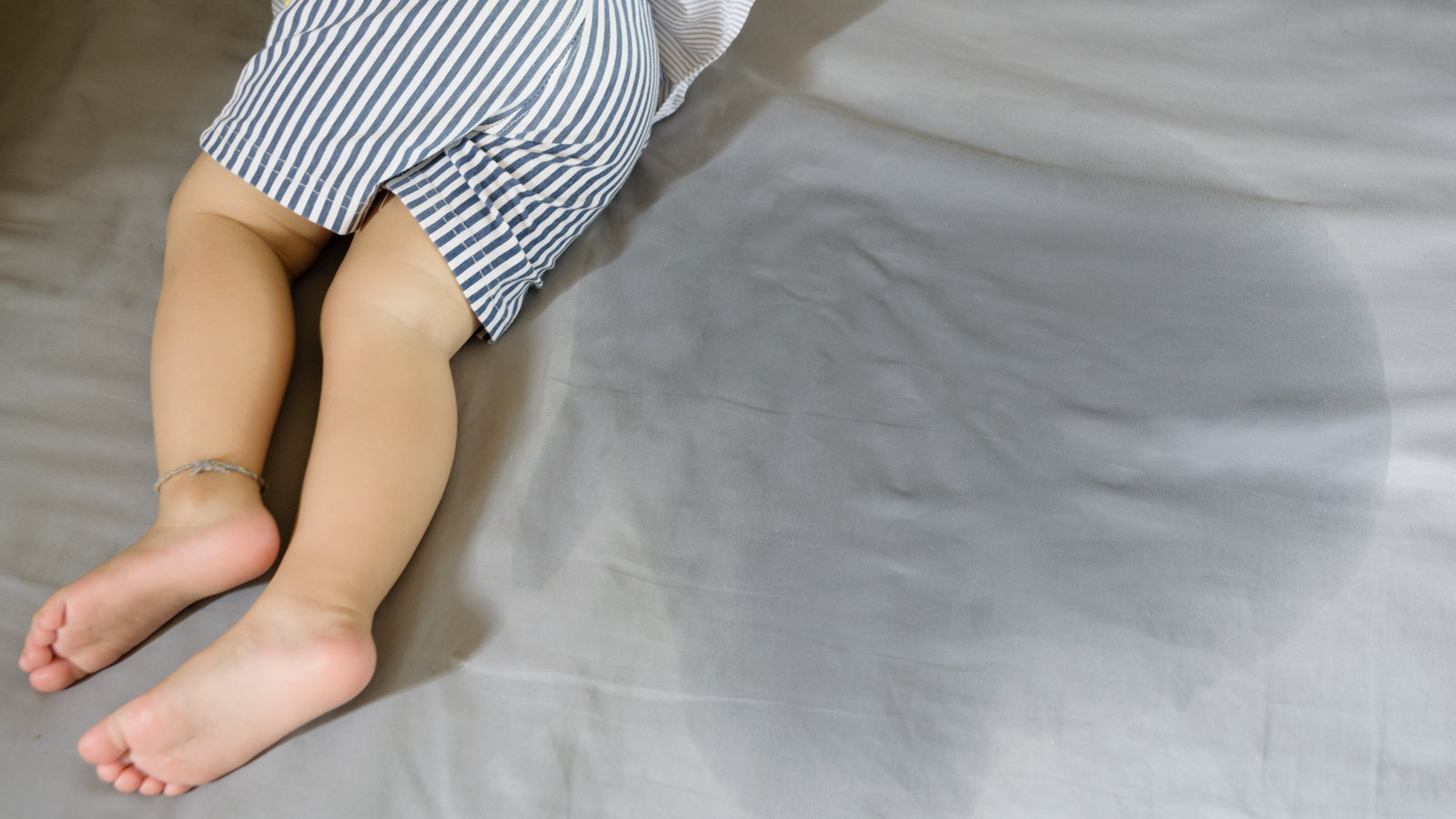
If you are reading this, then you’re probably a parent of a child who is experiencing bedwetting. The medical term for bedwetting is called Nocturnal Enuresis. This means, for whatever reason, a child is unable to control their bladder while they are sleeping.
Enuresis/Bedwetting Basics
Bedwetting is more common among boys than with girls. Sometimes children have difficulty with wetting the bed from toddler-hood; other children develop bedwetting at a later age. Some teenagers also experience bedwetting. The older the child, the more embarrassing it becomes. It may also cause a child to avoid certain situations out of fear of others finding out. Bedwetting is very common.
The most important thing for a parent to know is that bedwetting should not be punished. Disciplining a child or saying things like, “Do you need to wear a diaper, baby?” is not going to help matters. Children who wet the bed cannot help that they are wetting the bed.

There Are Basically Two Types of Enuresis:
Primary: A child has never gained nighttime urinary control. Primary nocturnal enuresis is more common then secondary. With primary, your child’s bladder may be too small; they may be sleeping too deeply or inherited a gene. Chances are if a parent had difficulty with bedwetting, their child will too.
Secondary: A child suddenly develops nighttime bedwetting. Secondary nocturnal enuresis is usually due to an emotional or psychological reason or something that causes your child to feel stressed. This could be something such as a new baby, a divorce, or new responsibilities. It can also be caused by certain medical conditions such as a urinary tract infection.
Helping Your Child
Bedwetting is considered normal until around the age of six. After six years, you may want to have your child evaluated by their pediatrician. Most cases of bedwetting do go away without medical treatment.
There are several things you can do as a parent to help your child who wets the bed:
Limit the amount of fluids your child consumes after dinner. Encourage your child that this will stop eventually.
Be positive with your child. Never talk in a negative tone with them about wetting the bed and never talk about your child wetting the bed in front of other people.
Stores now carry disposable underwear that looks like underwear. This should help your child from soiling the bed linens. It would also allow them to feel more confident about engaging in activities that may require an overnight stay.
If you or someone else in your family has experienced bedwetting, ask them to talk with your child. If you suspect bedwetting is related to deep sleeping, you could try waking your child up during the night to use the bathroom. Your child’s pediatrician is best able to determine if your child’s bedwetting is directly caused by a medical condition.
What your child needs from you right now is patience and understanding. Having a child who wets the bed is in no way implying you’ve done anything wrong as a parent. It also doesn’t mean your child has done anything wrong. Encourage and support your child and before you know it, bedwetting will hopefully just be an issue of the past.

